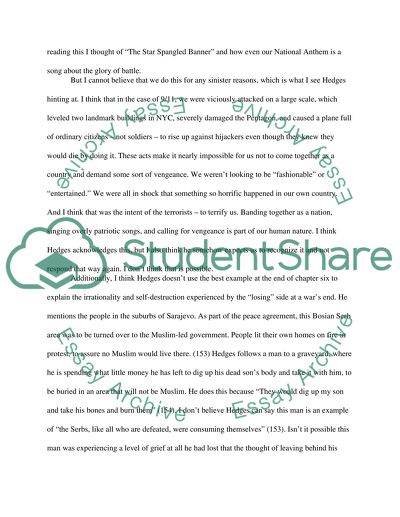The Idea of War in Media Personal Statement Example | Topics and Well Written Essays - 797 words. Retrieved from https://studentshare.org/military/1428336-please-read-the-second-halfstarting-from-chapter
The Idea of War in Media Personal Statement Example | Topics and Well Written Essays - 797 Words. https://studentshare.org/military/1428336-please-read-the-second-halfstarting-from-chapter.


